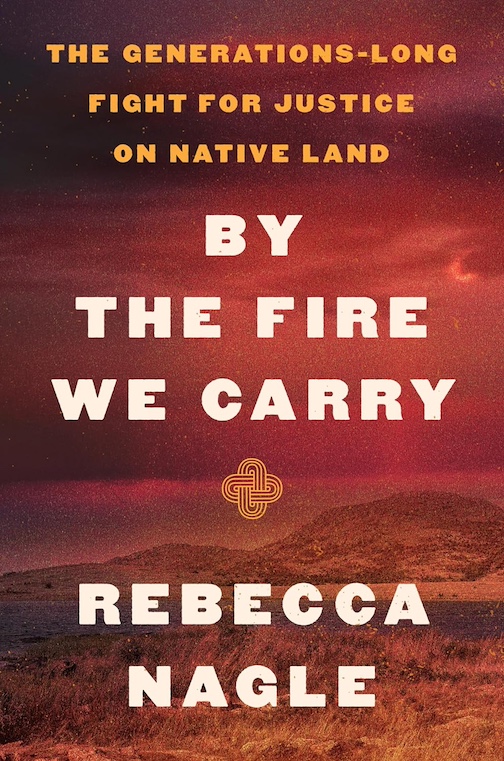God Bless Us, Every One
With The Further Adventures of Ebenezer Scrooge Charlie Lovett delivers a clever homage to the Dickens classic
North Carolina novelist Charlie Lovett has found his niche in writing novels that combine his passion for classic English literature with his gifts as a storyteller. Lovett’s first novel for adult readers, The Bookman’s Tale, is a literary mystery revolving around the perennial questions surrounding the authorship of Shakespeare’s plays. His second, First Impressions, alternates between a contemporary plot line and a fictionalized account of the life and career of Jane Austen. In The Further Adventures of Ebenezer Scrooge, Lovett approaches another British literary icon—Charles Dickens—and extends the plot of his most famous work, imagining what might have happened after that singular supernatural evening and the subsequent change of heart experienced by western literature’s most famous Christmas curmudgeon.
 A Christmas Carol is among the most ubiquitous stories in all of western culture. Marley’s ghost with his chains; Tiny Tim with his crutch; and the Ghosts of Christmas Past, Present, and Future are as familiar to us as the tradition they celebrate. Some critics have gone so far as to suggest that Dickens’s tale is largely responsible for our understanding of the meaning of Christmas and its annual celebration, even by those who don’t practice the religious faith from which it springs.
A Christmas Carol is among the most ubiquitous stories in all of western culture. Marley’s ghost with his chains; Tiny Tim with his crutch; and the Ghosts of Christmas Past, Present, and Future are as familiar to us as the tradition they celebrate. Some critics have gone so far as to suggest that Dickens’s tale is largely responsible for our understanding of the meaning of Christmas and its annual celebration, even by those who don’t practice the religious faith from which it springs.
Charlie Lovett begins The Further Adventures of Ebenezer Scrooge with a short preface in which he cites what Dickens called the “Carol Philosophy” of Christmas, voiced early on in the story by Scrooge’s genial nephew, Freddie, who claims that Christmas has always been “a good time; a kind, forgiving, charitable, pleasant time, the only time I know of, in the long calendar of the year, when men and women seem by one consent to open their shut-up hearts freely, and to think of people below them as if they really were fellow-passengers to the grave, and not another race of creatures bound on other journeys.” In The Further Adventures of Ebenezer Scrooge, Lovett’s project is twofold: to pay homage to Dickens through his most famous character, and to explore a worthwhile question: what if we strived to live with free and open hearts all the time, and not just during the winter holiday season? Why, as Elvis Presley once asked, can’t every day be like Christmas?
 This is the project Ebenezer Scrooge has set out for himself at the outset of Lovett’s novel, which picks up Scrooge’s tale twenty years after the night of his visitation by Marley’s ghost and the three spirits of Christmas. In the ensuing years, Scrooge’s persistent cheerfulness and charity has begun to wear on people’s nerves. “His constant kindnesses had grown wearisome from years of use,” Lovett writes. “No beggars implored him to bestow a trifle, for a ten-pound note would end their careers. No children asked him what was the o’clock, having no time to spare for stories and songs and tossing upon the knee.” Freddie, who once urged Scrooge to rediscover the spirit of Christmas, is now a bit of a curmudgeon himself, worn down with work and bills. Bob Cratchit is now a partner and has come to resemble the old Scrooge in his reluctance to leave work to spend time with is grandchildren. Worst of all, Scrooge—boundlessly generous as he’s been for the past twenty years—has given away his savings and has a pair of steely bank creditors breathing down his neck. Apparently, charity really does have its limits.
This is the project Ebenezer Scrooge has set out for himself at the outset of Lovett’s novel, which picks up Scrooge’s tale twenty years after the night of his visitation by Marley’s ghost and the three spirits of Christmas. In the ensuing years, Scrooge’s persistent cheerfulness and charity has begun to wear on people’s nerves. “His constant kindnesses had grown wearisome from years of use,” Lovett writes. “No beggars implored him to bestow a trifle, for a ten-pound note would end their careers. No children asked him what was the o’clock, having no time to spare for stories and songs and tossing upon the knee.” Freddie, who once urged Scrooge to rediscover the spirit of Christmas, is now a bit of a curmudgeon himself, worn down with work and bills. Bob Cratchit is now a partner and has come to resemble the old Scrooge in his reluctance to leave work to spend time with is grandchildren. Worst of all, Scrooge—boundlessly generous as he’s been for the past twenty years—has given away his savings and has a pair of steely bank creditors breathing down his neck. Apparently, charity really does have its limits.
The plot hinges on the appearance of Marley’s ghost, who periodically visits Scrooge for an hour or two of late-night conversation and a brandy, which he passes down his ethereal gullet and spreads out onto the cushion of Scrooge’s easy chair. Marley, it seems, is still trapped in limbo, having lost only a few links from his chains by way of Scrooge’s reformation. In an effort to help his friend get free of his burden, Scrooge resolves to enlist the help of the three spirits of Christmas to revive the benevolent impulses of his nephew, his partner, and his creditors, all in another magical night—this time in mid-summer rather than on Christmas Eve.
It’s a clever conceit, and Lovett approaches the material with hands supplicant and tongue firmly in cheek. There’s gentle satire, but there are also reverent allusions to a brace of Dickens novels, from Bleak House to Little Dorritt and David Copperfield. The text is roughly equivalent in length and tone to its source material, and Lovett—a former antiquarian bookseller and a scholar of Victorian literature—ably mimics Dickens’s prose in a style that is both appropriate to its setting and accessible to contemporary young readers. Most significantly, as he makes clear in a thoughtful afterword, Lovett places strong emphasis on Dickens’s persistent advocacy of on behalf of the poor. “Dickens had a great concern for social welfare,” Lovett writes, “and I wanted that concern to be manifest in my story.” In doing so, Charlie Lovett has delivered a charming and memorable addition to the Christmas tradition. God bless us, every one, indeed.

Ed Tarkington holds a B.A. from Furman University, an M.A. from the University of Virginia, and a Ph.D. from the creative-writing program at Florida State University. His debut novel, Only Love Can Break Your Heart, will be published by Algonquin Books in January 2016. He lives in Nashville.


